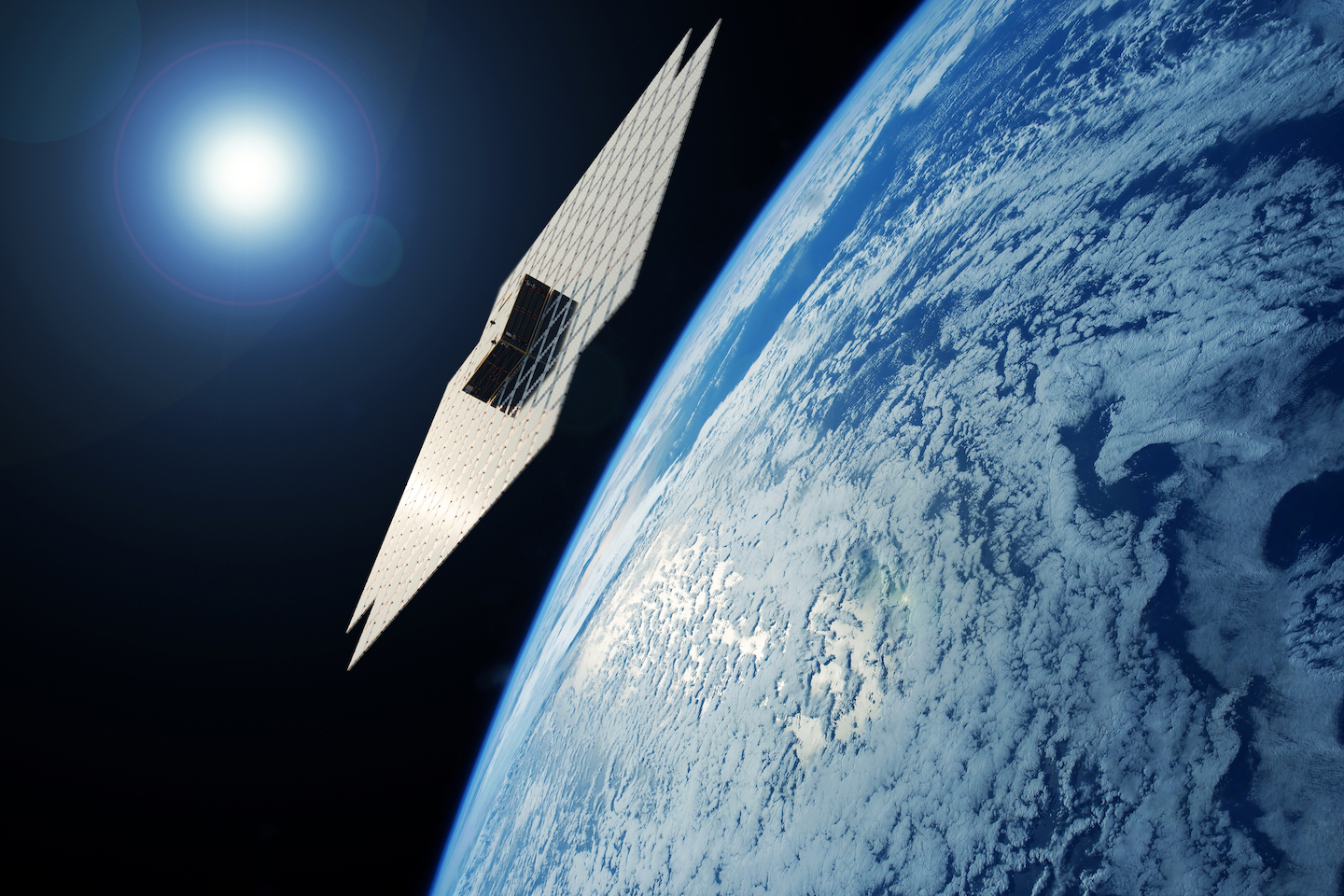Latest News

Rendering of AST SpaceMobile’s Blue Walker 3 test satellite in space. Photo: AST SpaceMobile
AT&T formalized its work with AST SpaceMobile with a new commercial agreement announced Wednesday. Under the agreement, AST SpaceMobile will provide space-based cellular broadband to AT&T’s customers through a revenue share model through 2030.
AST SpaceMobile stock price was up 68% on Thursday after the announcement.
The company also released its first quarter 2024 results on Wednesday and confirmed it will deliver its first five commercial satellites to Cape Canaveral this summer in July or August. These initial five satellites will allow for initial limited service in the U.S.
AT&T pitched the partnership as a way to make dead zones outside of cellular coverage “a thing of the past” for wilderness areas, rural highways, and other hard to reach locations.
“Space-based direct-to-mobile technology is designed to provide customers connectivity by complementing and integrating with our existing mobile network,” AT&T COO Jeff McElfresh said in a release. “This agreement is the next step in our industry leadership to use emerging satellite technologies to provide services to consumers and in locations where connectivity was not previously feasible.”
AT&T and AST SpaceMobile have been working together since 2018 under an MoU. The companies have a spectrum lease agreement that allows AST SpaceMobile to use AT&T’s spectrum to offer satellite service directly to cell phones. Earlier this year, AT&T, Google and Vodafone invested $110 million total in AST SpaceMobile, and AT&T made a $20 million revenue commitment as well.
Chris Sambar, head of Network for AT&T, will soon be appointed to AST SpaceMobile’s board of directors.
AST SpaceMobile CEO Abel Avellan told investors on Wednesday the company believes a significant part of the U.S. population will be willing to pay for the service. He did not share specifics of the service packages, but said the packages will allow users to receive text, voice, full broadband internet, and they are priced accordingly depending on the amount of service.
“It’s frictionless, so the user doesn’t need any special phone,” Avellan said. “AT&T has done a significant amount of market research on how to price it together with us and how to position it in order to maximize the takeup of the service.”
Chief Strategy Officer Scott Wisniewski clarified that there is no new revenue at this point beyond the $20 million revenue commitment, but there is now a legal agreement in place through which revenue will be brought in, with detailed SLAs.
AST SpaceMobile confirmed that the upcoming five satellites will offer non-continuous service across the U.S. with over 5,600 individual cells.
But the company still does not have market access from the FCC to operate in the U.S. Avellan said the company is “working closely” with the FCC to secure the approval and he is encouraged by the FCC’s recent new regulatory framework for satellite-to-cell service.
Wisniewski was optimistic about FCC approval on Thursday’s call with investors.
“The FCC has been moving incredibly fast here in establishing rules for direct-to-device, and we’ve been working with them for a long time on that. And we believe that this is going to ensure that our technology can be utilized once it’s available commercially,” Wisniewski said. “Our MNO partners fully understand the process of the regulator and are even much closer to them than us, and they’re comfortable that our system will be regulated and usable.”
AST SpaceMobile brought in $500,000 in revenue in the first quarter and had $56 million in operating expenses. Net loss was $39.8 million.
The company ended the quarter with $212.4 million in cash. CFO Sean Wallace said the company believes this cash along with the company’s ability to raise capital through existing credit facilities is sufficient to support expenditures for at least the next 12 months.
Stay connected and get ahead with the leading source of industry intel!
Subscribe Now